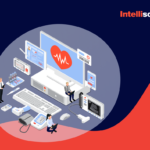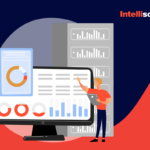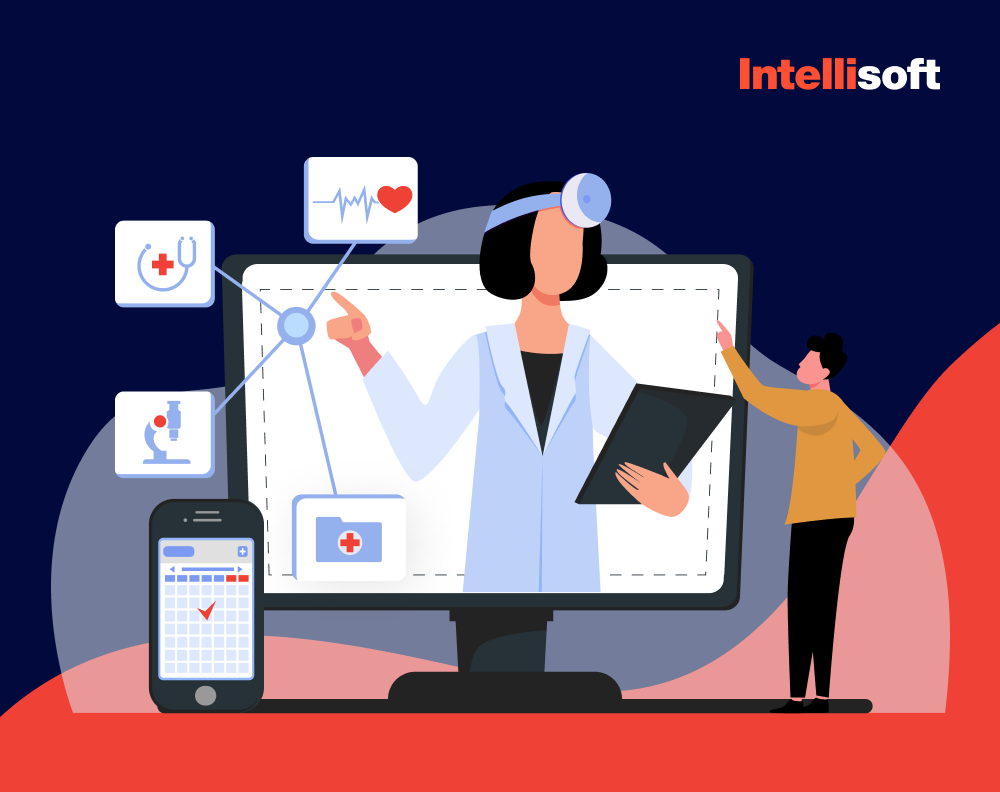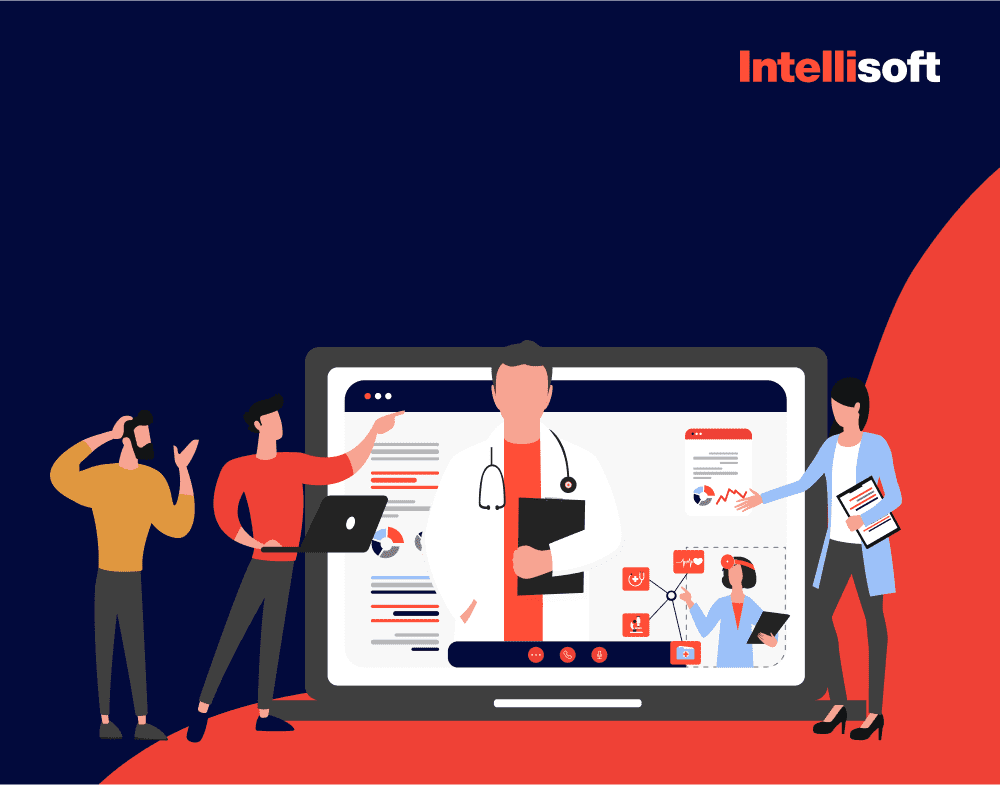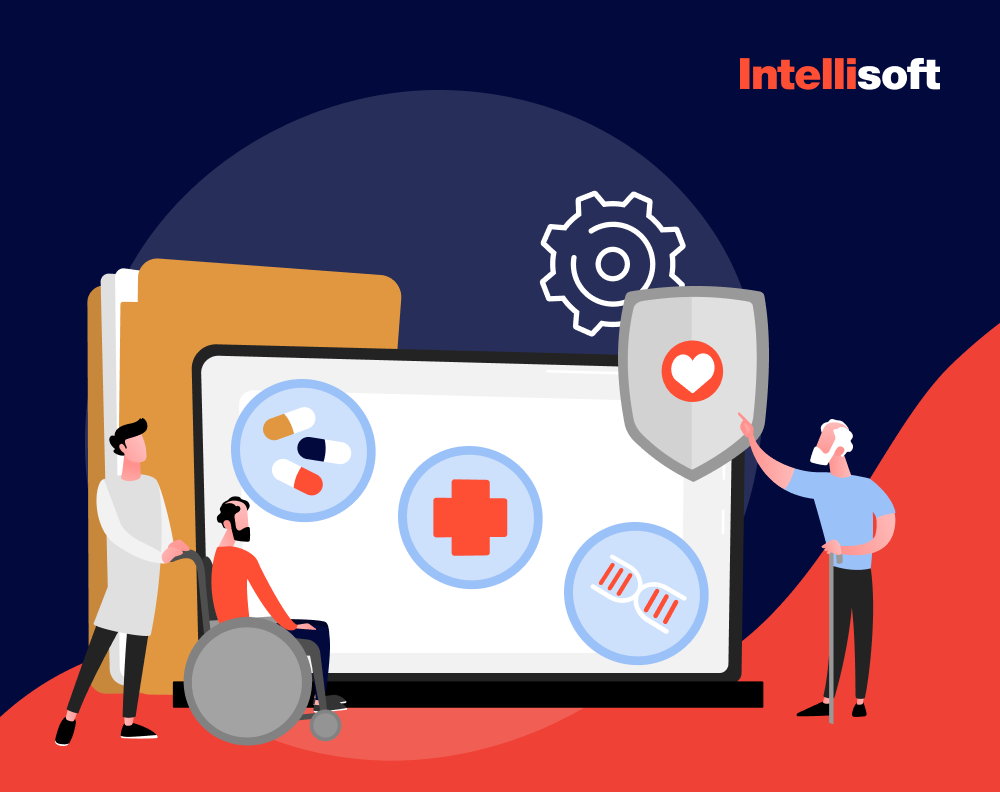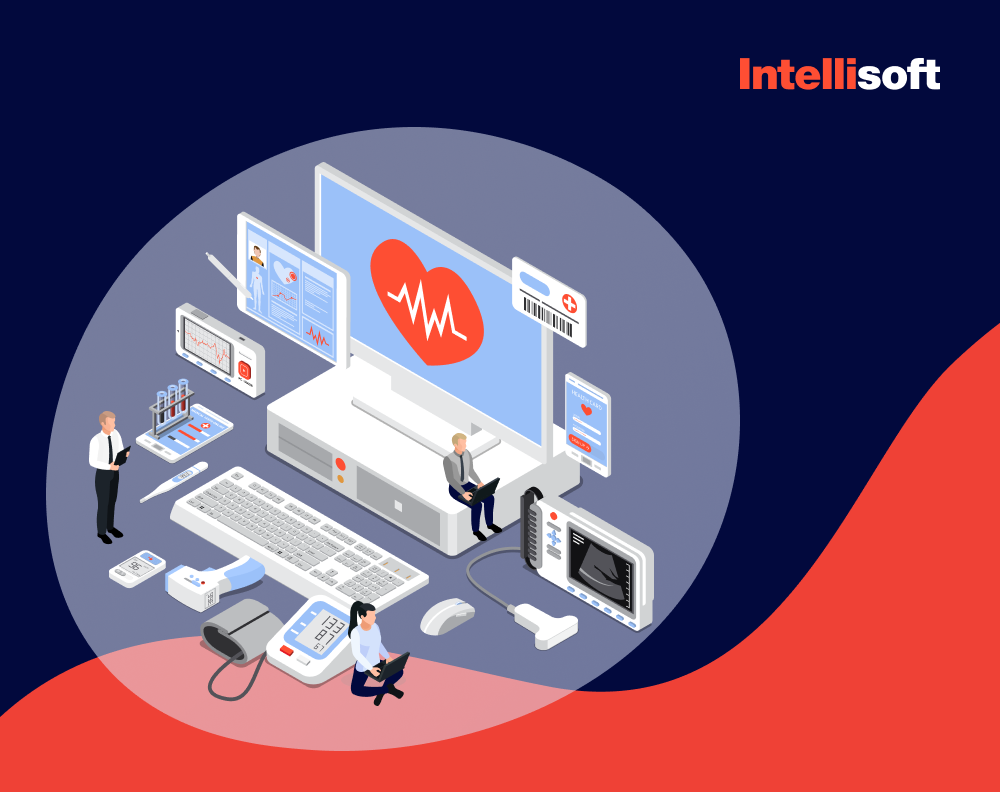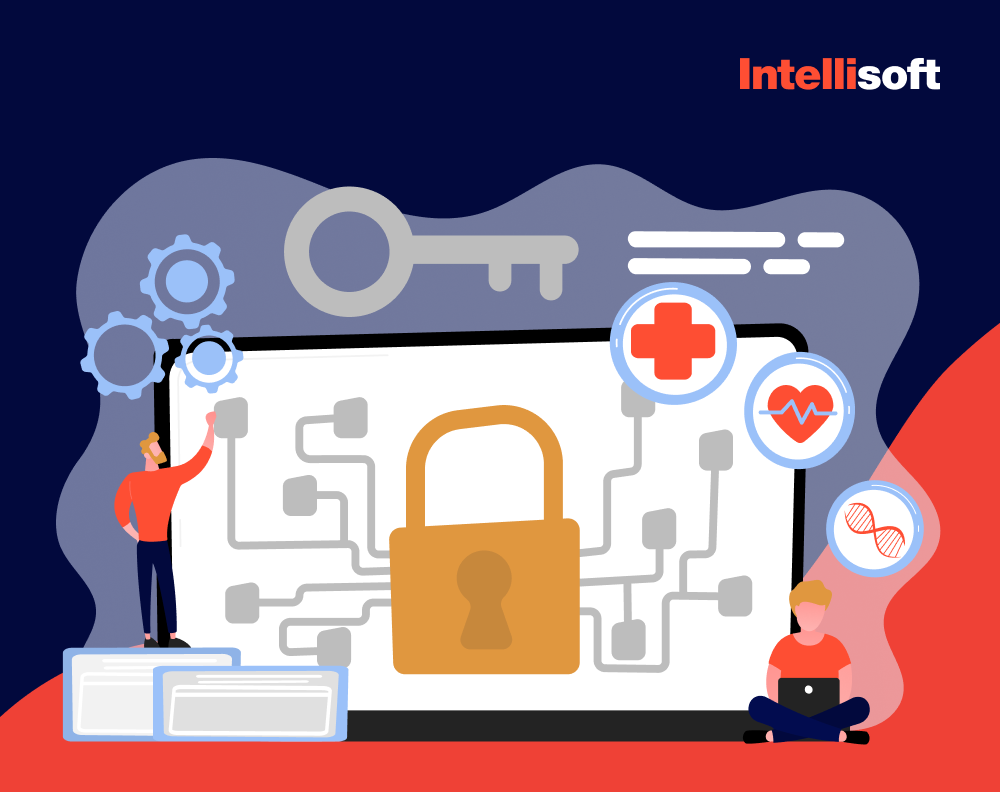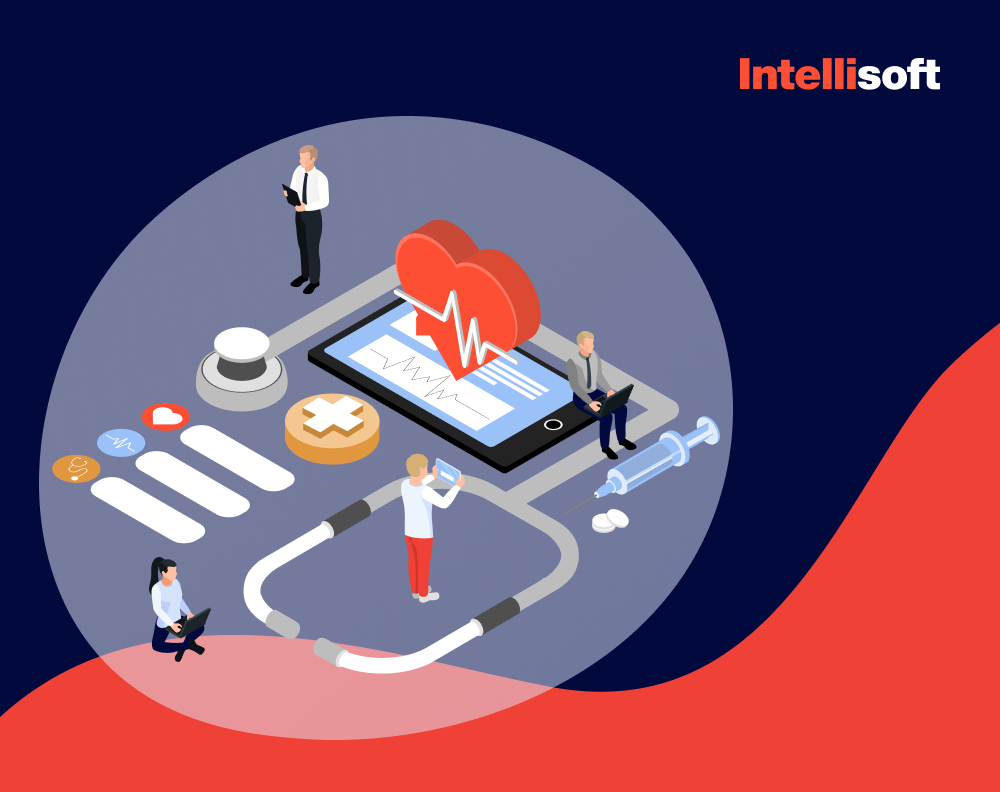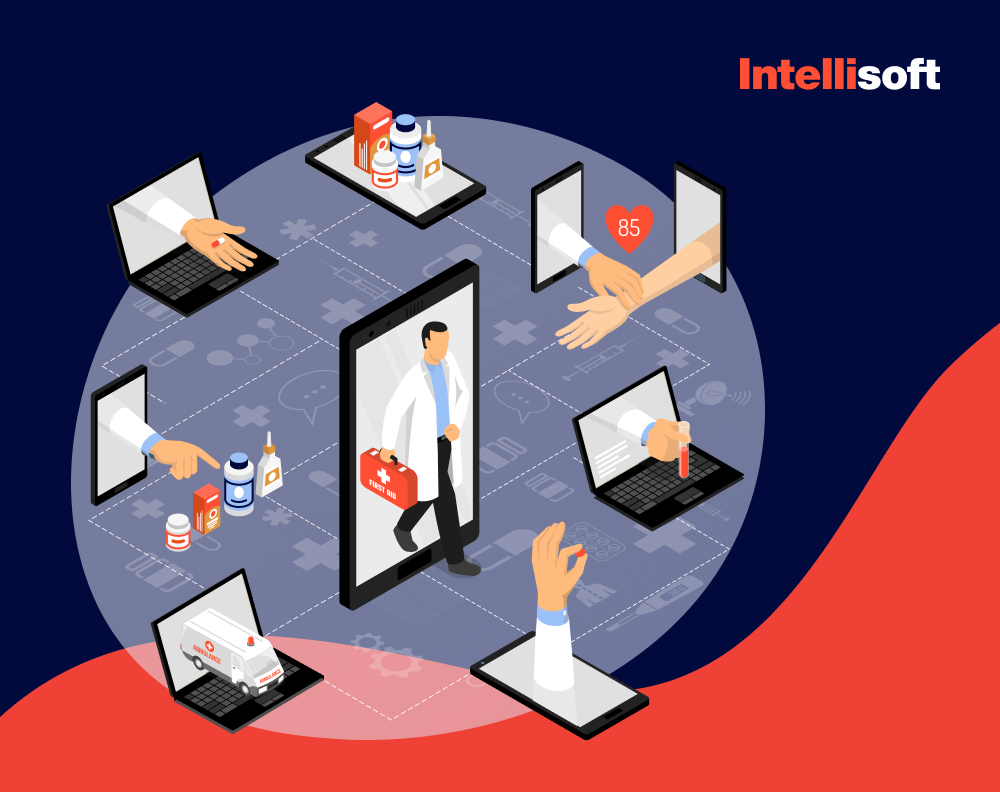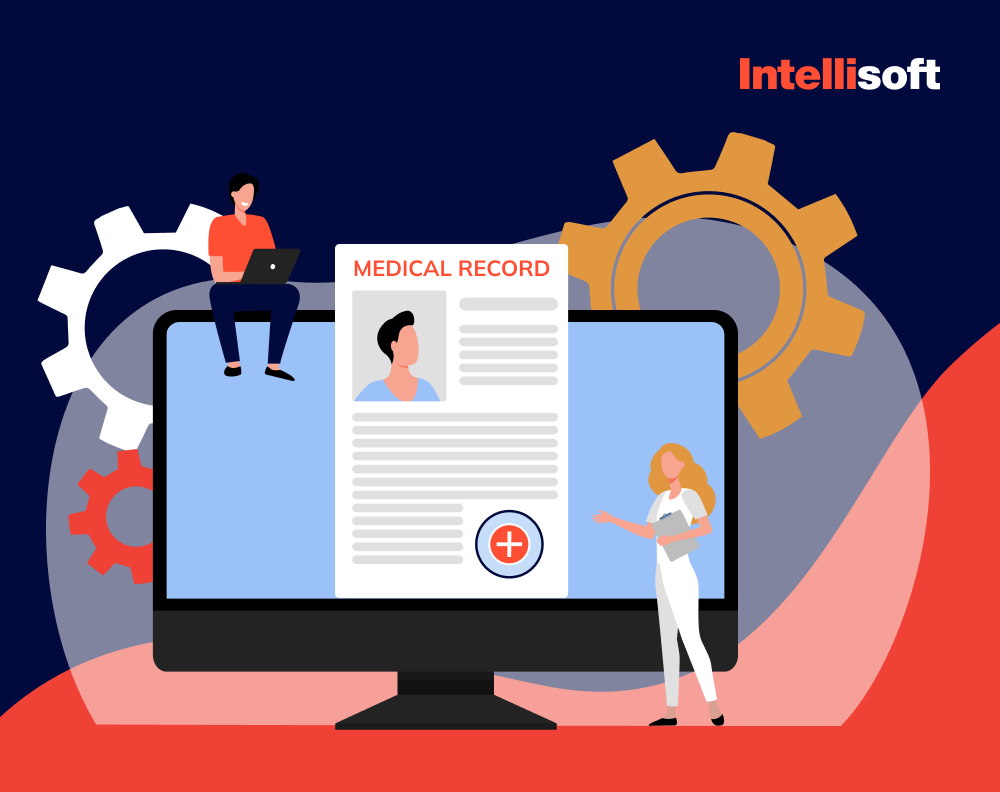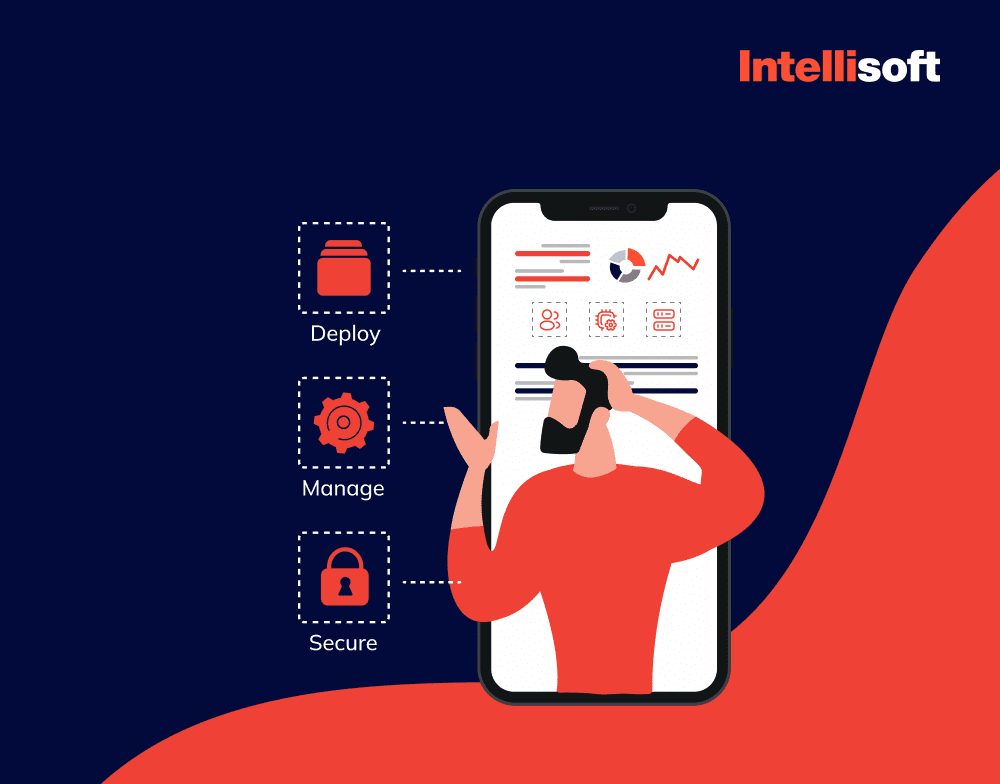eLearning for healthcare is witnessing considerable expansion, fueled by the need for ongoing professional development and the swift evolution of medical knowledge. Recent studies indicate that the global healthcare education market will grow significantly in the years ahead, underscoring the rising demand for flexible and easily accessible learning options.
Due to their hectic schedules, healthcare professionals often struggle to stay abreast of the latest technologies, regulations, and treatment protocols. This challenge can lead to knowledge and skill gaps, ultimately impacting the quality of patient care.
This article will explore innovative eLearning solutions for healthcare designed to address these challenges, offering practical strategies to enhance learning and professional development among healthcare workers. By the end, you’ll gain insights from IntelliSoft’s expert team into how these solutions can boost individual competencies and improve patient outcomes overall.
Table of Contents
E-learning Market Statistics
Spending on online education rose significantly, nearly tripling from $35.6 billion in 2011 to $107 billion by 2015. By 2015, digital education accounted for 22 percent of the total revenue in higher education.
In 2019, the global EdTech market, largely propelled by the widespread use of smart devices and improved internet connectivity, was valued at $76.4 billion. Projections indicate that this market could expand at a compound annual growth rate of 18.1 percent between 2020 and 2027. Additionally, 2020 witnessed a remarkable $30 billion in venture capital investments targeting e-learning and digital health startups.
The latest data suggests that by 2026, the digital learning industry may surpass $370 billion.
“In the ever-evolving field of healthcare, e-learning bridges the gap between knowledge and practice, making continuous education accessible to all.” — Dr. Michael D. Adams
Why Is E-learning for Healthcare Important
E-learning plays a pivotal role in the healthcare sector for several key reasons:
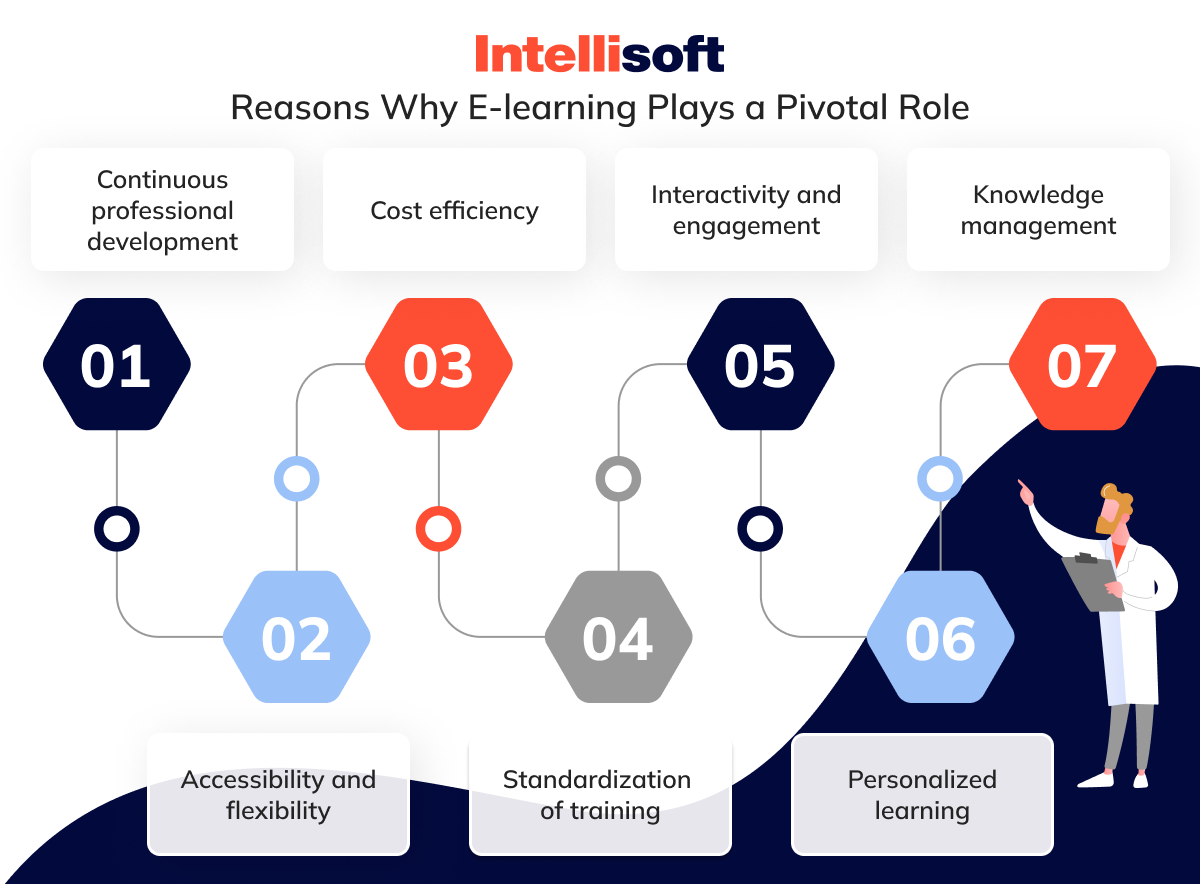
- Continuous professional development. It keeps healthcare professionals abreast of the latest medical advancements and practices, ensuring they can consistently deliver the highest standard of care.
- Accessibility and flexibility. E-learning offers the flexibility needed to accommodate the busy schedules of healthcare workers, allowing them to learn at their own pace and at times that best suit them.
- Cost efficiency. E-learning makes education more affordable and accessible by reducing expenses related to traditional learning, such as travel and materials.
- Standardization of training. It guarantees consistent and standardized training across different locations and institutions, helping maintain a uniformly high level of education.
- Interactivity and engagement. Many e-learning platforms incorporate interactive features such as quizzes and simulations, which help boost engagement and improve knowledge retention.
- Personalized learning. E-learning enables customized instruction, allowing learners to adjust the pace and content according to their needs and learning preferences.
- Knowledge management. It enhances the management and distribution of knowledge, ensuring healthcare professionals have ongoing access to the most current information and resources.
Key Benefits of eLearning for Healthcare
One of the biggest advantages of eLearning over traditional classroom or in-person training is its flexibility. Healthcare professionals can dive into their training materials whenever and wherever suits them, seamlessly fitting education into their often hectic schedules. However, flexibility is just the tip of the iceberg—eLearning offers many other benefits, making it a transformative force in education. Here’s why it’s worth exploring:
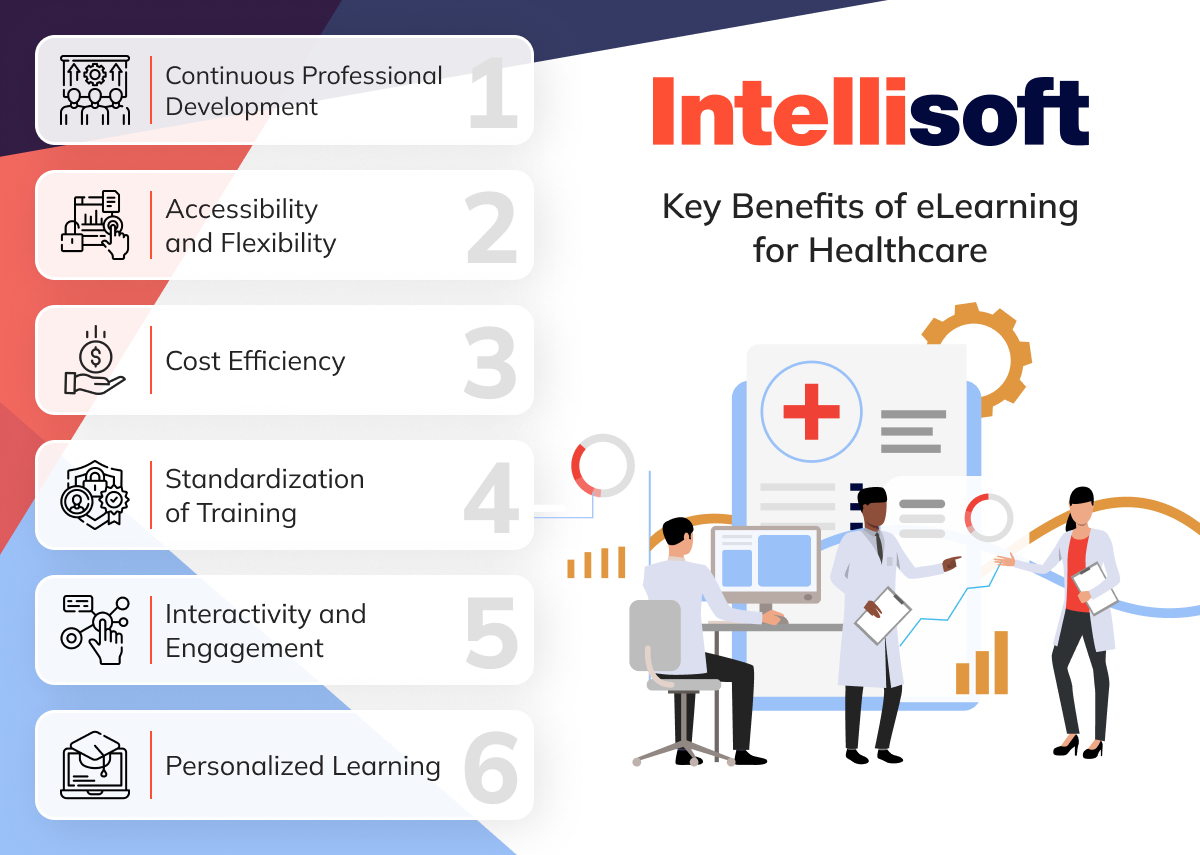
Continuous Professional Development
E-learning empowers healthcare professionals by giving them continuous access to the latest medical advancements and best practices. This consistent flow of updated information is crucial for their ongoing professional development, helping them refine their skills and knowledge. Staying informed about new treatments and procedures is essential in a field where the landscape is always changing, ensuring they can deliver the highest standard of patient care.
Accessibility and Flexibility
One of the greatest benefits of e-learning is its unmatched accessibility and flexibility. Healthcare professionals can tap into training materials and courses whenever and wherever it suits them, allowing them to integrate learning seamlessly into their demanding schedules. This adaptability ensures they can pursue education without compromising their professional duties, striking a perfect balance between work and ongoing development.
Cost Efficiency
E-learning presents a cost-effective alternative to traditional training methods by significantly reducing expenses such as travel, accommodation, and printed materials. Healthcare institutions can offer high-quality training without the need for physical classrooms or instructors, further driving down costs. This financial efficiency makes e-learning a sustainable and practical choice for ongoing professional education.
Standardization of Training
E-learning guarantees that healthcare professionals, no matter where they are located, receive the same quality of education and training. This standardization is vital for maintaining consistent healthcare practices and protocols across different institutions. By offering uniform training materials and assessments, e-learning plays a key role in upholding high standards of patient care and operational efficiency.
Interactivity and Engagement
E-learning platforms often include interactive features such as quizzes, simulations, and multimedia presentations that significantly boost learner engagement and retention. These tools make learning more dynamic and effective, enabling healthcare professionals to practice skills in a controlled, risk-free environment. This hands-on approach is precious for mastering complex medical procedures and enhancing decision-making capabilities.
Personalized Learning
E-learning offers a personalized learning experience, allowing healthcare professionals to advance at their own pace and concentrate on areas for improvement. This customized approach ensures learners can optimize their educational outcomes by focusing on their unique needs and learning styles. They can develop skills more efficiently and effectively by following personalized learning paths.
Use Cases for Healthcare E-learning
The healthcare industry constantly evolves, driven by groundbreaking technologies and innovative practices redefining patient care. In such a dynamic environment, e-learning has emerged as a vital tool in medical education. By incorporating e-learning into everyday practice, we can ensure that healthcare professionals remain at the forefront of their fields, sharpening their skills and expanding their knowledge. Let’s look at some use cases for healthcare e-learning:
Medical Online Training
Aspiring nurse Sarah is eager to master the art of catheter insertion, but her nursing program falls short in providing hands-on practice for this essential skill. Determined to succeed, Sarah discovers an eLearning platform that offers a specialized catheterization course. Sarah dives into the training with clear, step-by-step instructions and detailed demonstrations. The course allows her to practice on a mannequin with virtual guidance, building her confidence with each session. By the end, Sarah feels fully prepared to apply her new skills in a real-world setting.
Patient Education
Mark has been navigating the complexities of living with diabetes, but it’s been no easy feat. His doctor has recommended a different strategy; an eLearning program tailored to equip him with vital knowledge and skills. Through this program, Mark will be confident in accurately monitoring his blood sugar levels, administering insulin correctly, and following a nutritious diet. Tracking his progress with quizzes and interactive tools becomes straightforward and enjoyable. With these resources, Mark is empowered to take charge of his health and make the changes necessary for a healthier, happier life.
Compliance Training
Hospitals and clinics operate under strict regulations; every healthcare worker must understand and follow these rules. Jane, a newly hired employee, needs to get up to speed quickly, so she dives into an eLearning program designed to make compliance training engaging and informative. The program offers interactive lessons on patient privacy, medical record keeping, and infection control. After completing the course, Jane feels confident and prepared to adhere to the hospital’s policies, ensuring she can contribute to a safe and compliant workplace.
Continuing Medical Education (CME)
Dr. Smith, a dedicated and experienced medical professional, knows how crucial it is to stay on top of her field’s latest research and best practices. To ensure her knowledge remains up-to-date, she enrolls in an eLearning program that provides a diverse array of continuing medical education courses. The program covers everything from innovative treatment techniques to the latest medical technology. It is even better that Dr. Smith can progress through the courses at her own pace, seamlessly integrating learning into her busy schedule while earning valuable continuing education credits.
Employee Onboarding
Meet Alex, the newest addition to our clinic’s healthcare team. Alex is eager to learn about the clinic’s history, culture, and policies, as is anyone stepping into a new role. Luckily, our clinic offers a thorough eLearning program that covers all these areas—and even more. Alex can take his time with the program, reviewing the material at his own pace and revisiting any sections as needed. When he arrives on his first day, he’ll feel confident and well-prepared, ready to impacthis new workplace positively.
Should I Develop a Custom Learning System for the Healthcare or Use SaaS?
When deciding whether to build a custom learning management system (LMS) or opt for a SaaS solution, it’s crucial to consider several factors that align with your healthcare organization’s specific needs and resources.
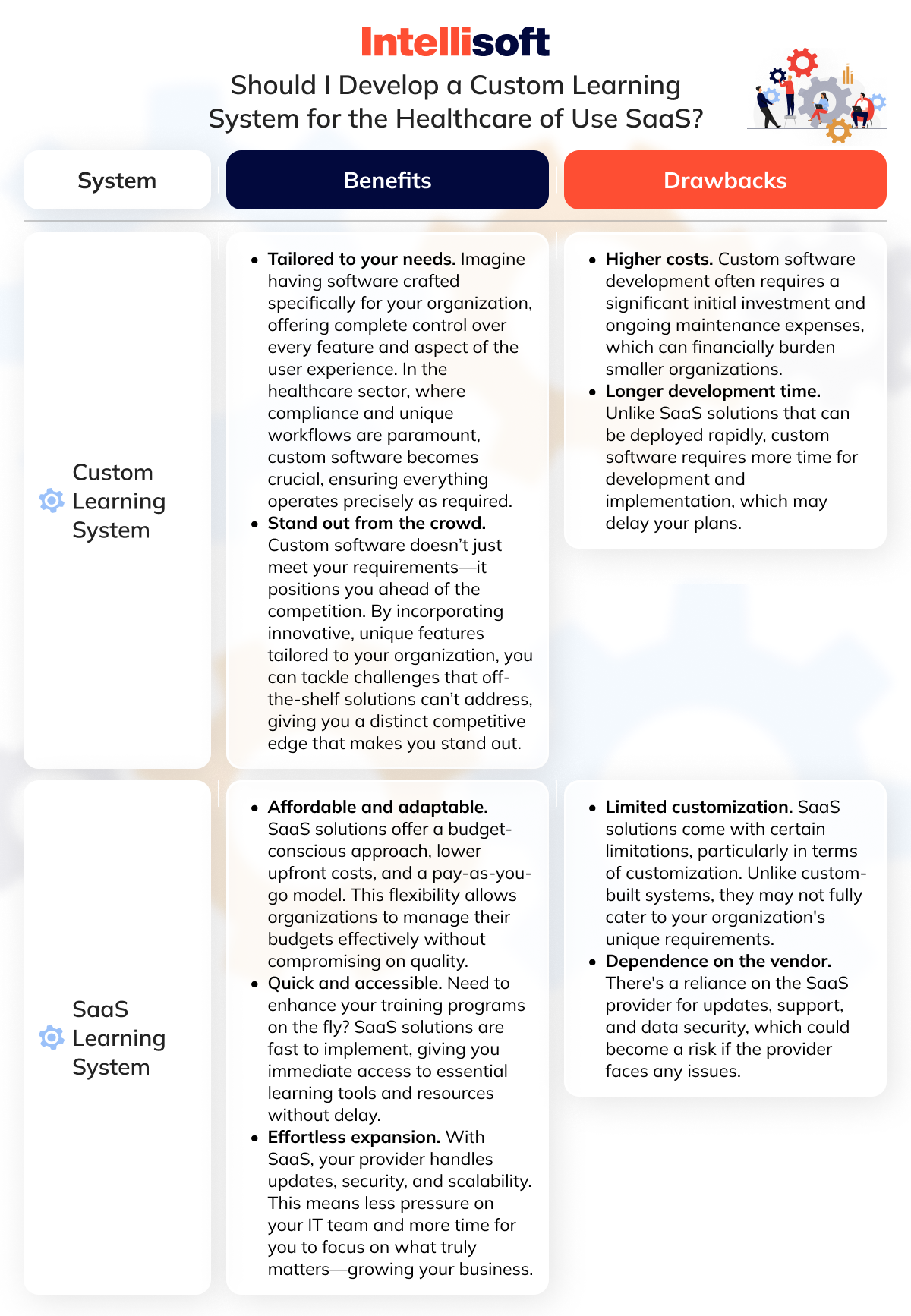
Benefits of Custom Learning Systems
Here are the two advantages of custom LMS for healthcare organizations:
- Tailored to your needs. Imagine having software crafted specifically for your organization, offering complete control over every feature and aspect of the user experience. In the healthcare sector, where compliance and unique workflows are paramount, custom software becomes crucial, ensuring everything operates precisely as required.
- Stand out from the crowd. Custom software doesn’t just meet your requirements—it positions you ahead of the competition. By incorporating innovative, unique features tailored to your organization, you can tackle challenges that off-the-shelf solutions can’t address, giving you a distinct competitive edge that makes you stand out.
Drawbacks of Custom Learning Systems
However, such systems have disadvantages:
- Higher costs. Custom software development often requires a significant initial investment and ongoing maintenance expenses, which can financially burden smaller organizations.
- Longer development time. Unlike SaaS solutions that can be deployed rapidly, custom software requires more time for development and implementation, which may delay your plans.
Benefits of SaaS Learning Systems
In addition to custom LMS, organizations can choose SaaS learning systems. Here are their advantages:
- Affordable and adaptable. SaaS solutions offer a budget-conscious approach, lower upfront costs, and a pay-as-you-go model. This flexibility allows organizations to manage their budgets effectively without compromising on quality.
- Quick and accessible. Need to enhance your training programs on the fly? SaaS solutions are fast to implement, giving you immediate access to essential learning tools and resources without delay.
- Effortless expansion. With SaaS, your provider handles updates, security, and scalability. This means less pressure on your IT team and more time for you to focus on what truly matters—growing your business.
Drawbacks of SaaS Learning Systems
But these systems also have weaknesses:
- Limited customization. SaaS solutions come with certain limitations, particularly in terms of customization. Unlike custom-built systems, they may not fully cater to your organization’s unique requirements.
- Dependence on the vendor. There’s a reliance on the SaaS provider for updates, support, and data security, which could become a risk if the provider faces any issues.
In summary, opting for a custom learning system could be the ideal path if your healthcare organization demands specialized features and has the resources for custom development. On the other hand, if you’re looking for a more affordable, easily deployable option with lower upkeep, a SaaS LMS would be the better fit.
Related articles:
- Big Data Analytics in Healthcare: Role and Benefits
- Data Warehousing in Healthcare: Transformative Strategies
- Hospital Management Software: Drive Superior Patient Outcomes
- What is EHR Software? Build Your Custom System and Digitize Doctor’s Scribbles with IntelliSoft
- Best Examples Of Successful Healthcare IT Start-Ups From Denmark
Key Features For an Elearning Healthcare Platform
A learning management system tailored for healthcare is built with the specific needs of healthcare organizations in mind. But when it comes to choosing the right one, what key features should you consider?
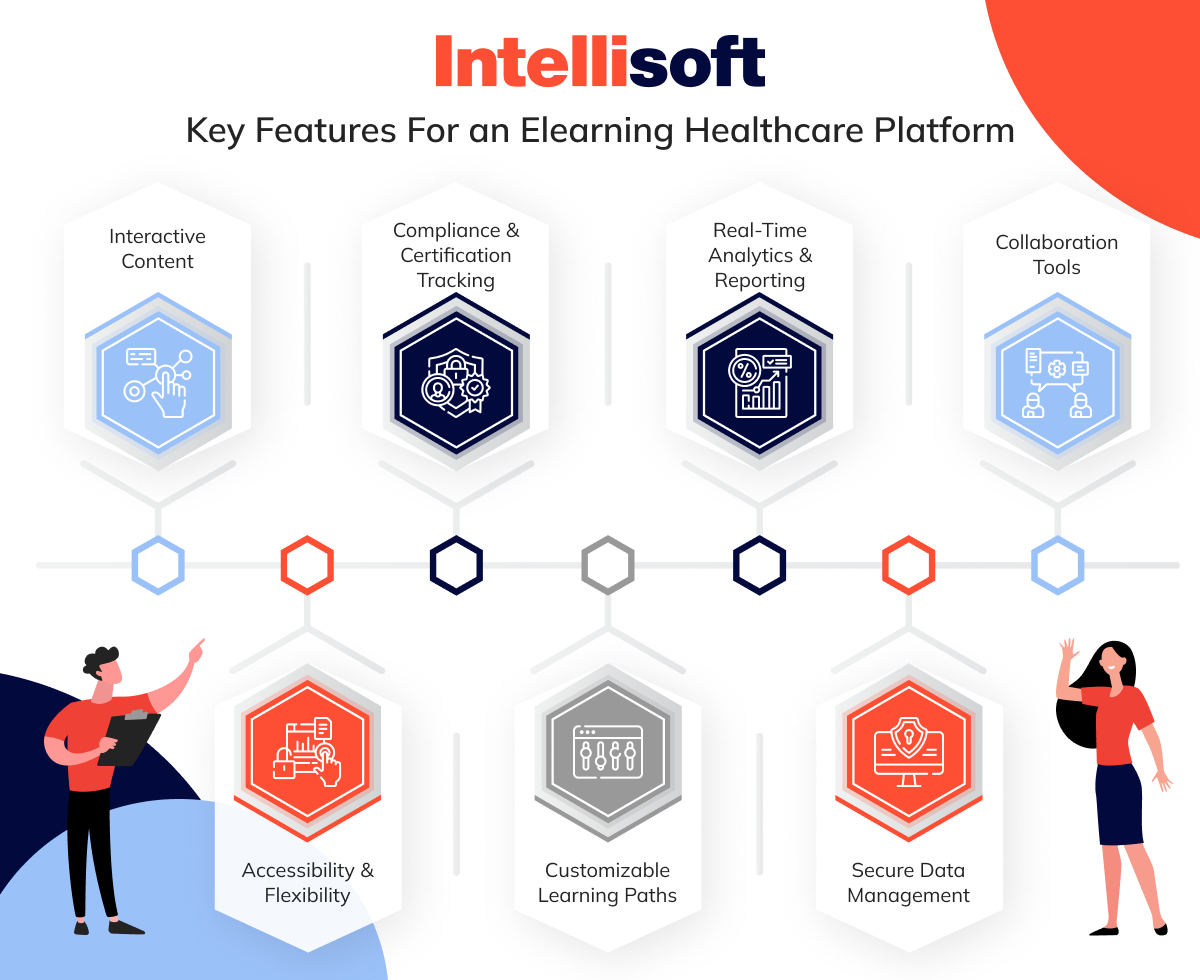
Interactive Content
Interactive content plays a pivotal role in making eLearning in healthcare more successful. Picture yourself engaging with videos, animations, and simulations that breathe life into medical concepts, simplifying even the most challenging topics. With interactive quizzes and real-world case studies, healthcare professionals move beyond just learning—they actively practice, honing their skills in real-world scenarios. These dynamic tools make eLearning more captivating and effective, enhancing knowledge retention and practical abilities.
Accessibility and Flexibility
An eLearning system must be as versatile as the professionals who rely on it. To genuinely support those with hectic schedules, courses need to be easily accessible on all devices—be it a smartphone, tablet, or computer. This approach provides quality eLearning for healthcare workers whenever and wherever it fits into their busy lives. Additionally, the platform should enable asynchronous learning, allowing users to progress at their own pace. Such flexibility is crucial for healthcare professionals who often deal with unpredictable shifts and tight schedules.
Compliance and Certification Tracking
Ensuring compliance with healthcare regulations is essential in the medical field. That’s why an eLearning system tailored for healthcare must include powerful tools to monitor and manage compliance training and certifications. These features help every staff member stay current with their required training, reducing the risk of non-compliance and enhancing patient safety. Additionally, automated reminders for certification renewals and comprehensive reporting facilitate the compliance process, ensuring that nothing is overlooked.
Customizable Learning Paths
Healthcare organizations face diverse training needs influenced by their specialties and operational demands. Therefore, an effective eLearning platform must be adaptable to create personalized learning pathways. This flexibility allows administrators to design courses tailored to the specific requirements of different roles, departments, or even individual learners. By customizing the training, healthcare professionals gain the precise knowledge and skills necessary to excel in their positions, ensuring their education perfectly aligns with their unique responsibilities.
Real-Time Analytics and Reporting
Stay ahead of the curve with real-time analytics and reporting, unlocking powerful insights into how your learners are progressing and how well your courses are performing. Imagine having the ability to track completion rates, quiz scores, and user engagement in one place. This isn’t just about numbers—it’s about understanding where learners might be hitting roadblocks and making smart adjustments to keep them on the path to success. With these data-driven insights, you can continuously fine-tune your training programs, ensuring they stay effective and align perfectly with your organization’s goals.
Secure Data Management
Ensuring the secure handling of healthcare information is crucial for any eLearning platform, especially given the sensitive nature of the data. Compliance with regulations such as HIPAA is essential, requiring the platform to integrate advanced security measures. This includes encrypted storage, robust user authentication processes, and routine security audits. By implementing these critical safeguards, the platform protects personal and institutional data from potential breaches and fosters trust among users who depend on its security.
Collaboration Tools
Collaboration tools are essential in healthcare, bridging the gap between professionals and making it easier to exchange knowledge and ideas. With features such as discussion forums, chat rooms, and collaborative group projects, these tools transform learning into an interactive experience. They don’t just enhance learning; they foster a strong sense of community, promoting peer-to-peer engagement. In healthcare, where teamwork and shared expertise are crucial, such collaboration can significantly impact.
Key LMS SaaS for Healthcare
Look at some critical SaaS learning management systems for the healthcare industry.
Relias Healthcare LMS
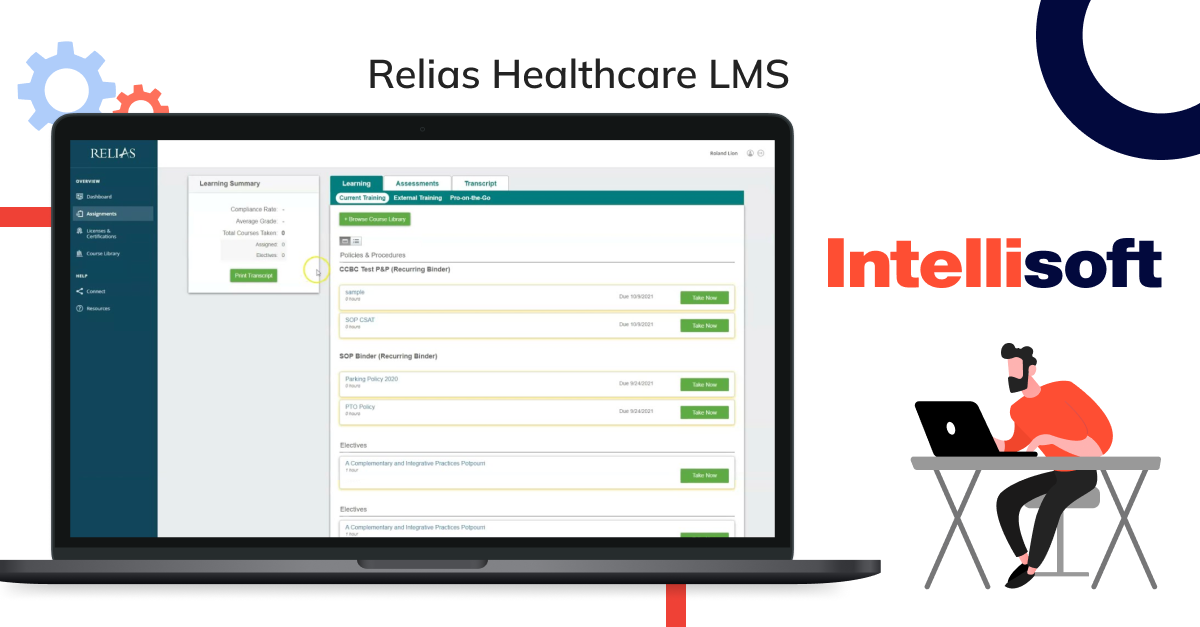
Relias Healthcare LMS supports healthcare organizations in building thorough learning and assessment programs designed to close knowledge gaps. Its vast library of over 5,000 courses provides comprehensive training across numerous medical disciplines. The platform’s features include automated training that adheres to healthcare regulations, sophisticated tracking and reporting tools, and customizable learning paths tailored to various roles. Additionally, Relias ensures compliance with regulatory standards by offering courses vetted by more than 135 accrediting bodies.
Docebo
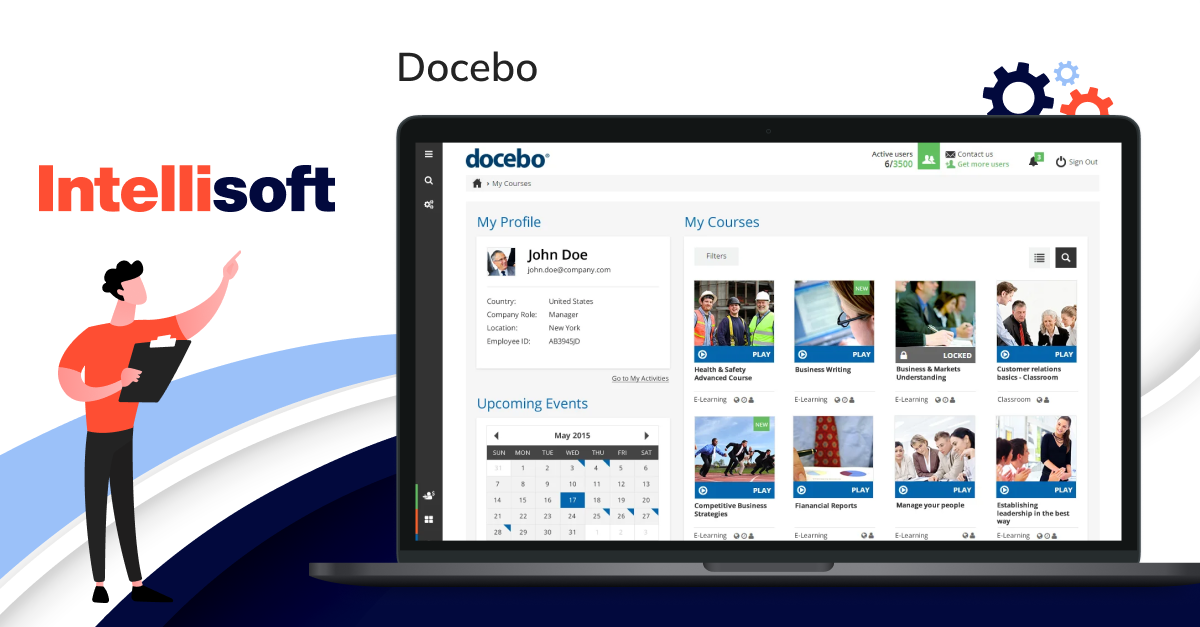
Docebo caters to mid-to-large healthcare organizations, offering AI-driven content curation and personalized recommendations. The platform supports social learning, gamification, and mobile access, positioning it as a versatile LMS with healthcare-specific content. With a scalable, cloud-based architecture and robust analytics tools, Docebo enables healthcare providers to manage training programs and promote continuous professional development efficiently.
Absorb LMS
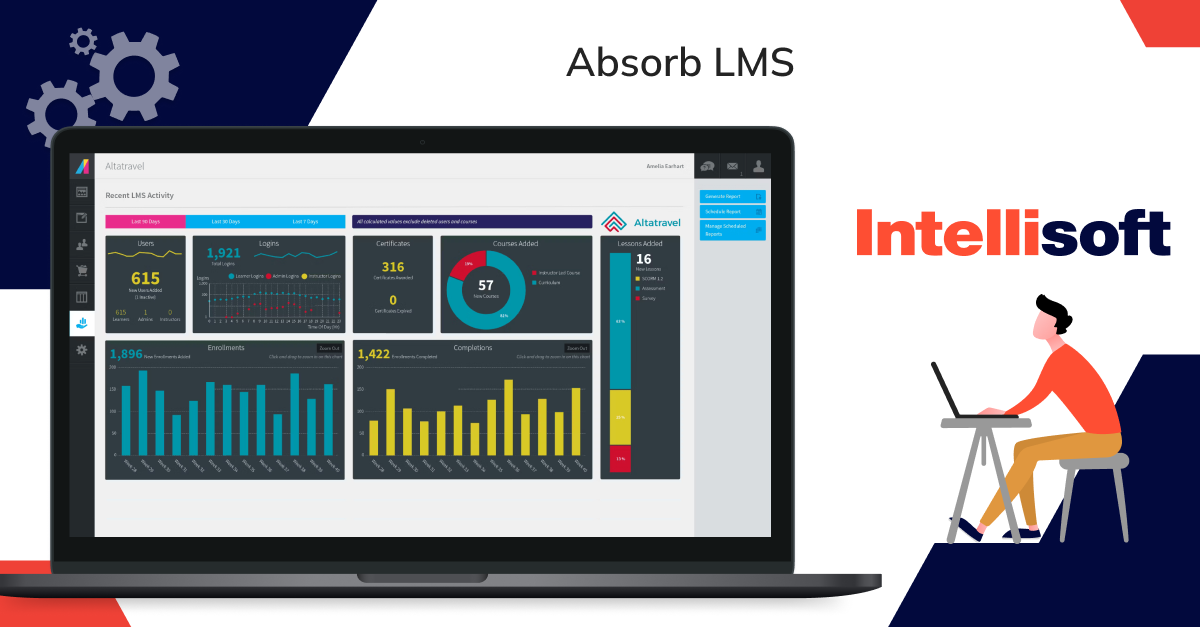
Absorb LMS is a cloud-based platform designed to help healthcare organizations train clinicians and monitor performance through intelligent reporting. The system’s intuitive interface provides strong EHR end-user support for blended learning, advanced analytics, and a mobile-friendly design. Absorb LMS also offers built-in course authoring tools, allowing customized learning experiences to be created.
Tovuti LMS
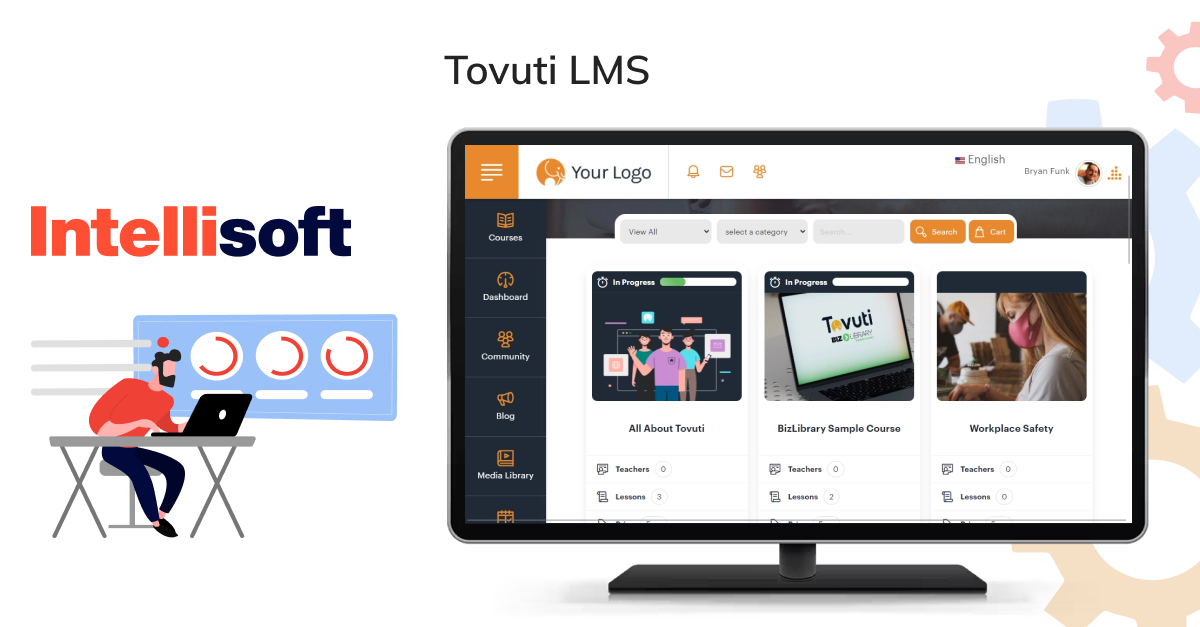
Tovuti LMS delivers an on-demand learning management system with interactive features such as quizzes, surveys, and discussions. It seamlessly integrates webinar tools, custom branding options, and social community features to boost learner engagement. Offering mobile access and offline learning capabilities, Tovuti provides a flexible solution for healthcare organizations aiming to efficiently create and manage training programs.
TalentLMS
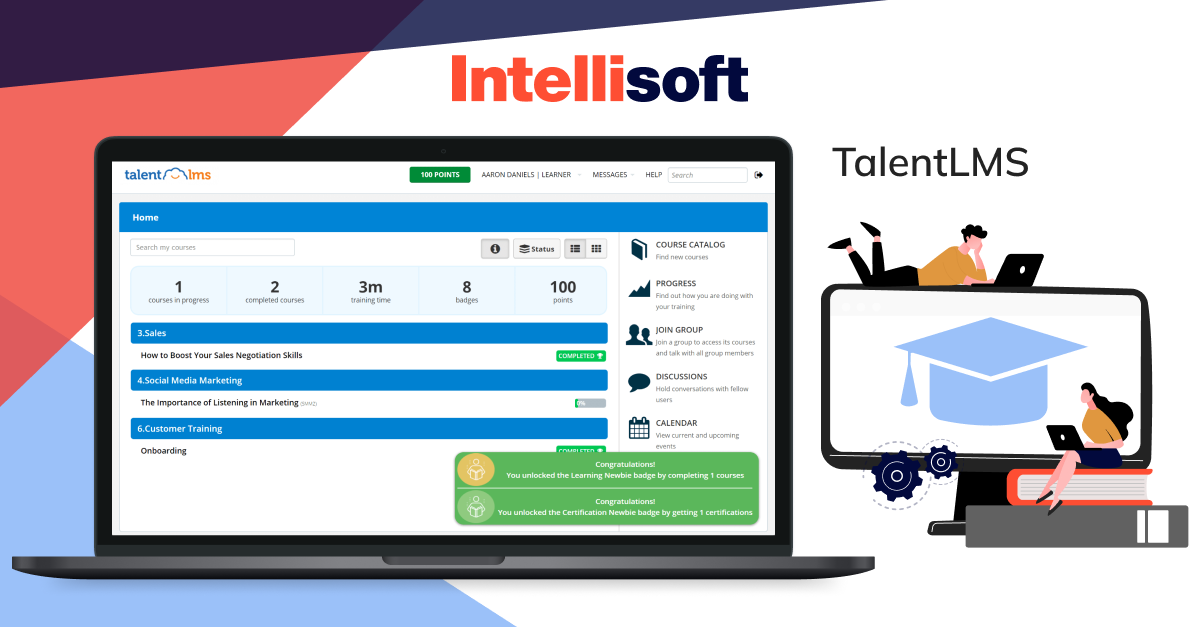
TalentLMS is a versatile platform designed to help organizations develop and customize their curriculum. It allows content import from various sources and includes automation features for user management. With an intuitive interface, extensive customization options, and multi-language support, TalentLMS is well-suited for diverse healthcare training needs.
“The integration of e-learning in healthcare has transformed traditional medical education, offering flexible and efficient ways for professionals to acquire new skills and knowledge.” — Dr. Lisa Johnson
Success Story: How IntelliSoft Develop E-learning Module for Cambio Healthcare Systems
IntelliSoft embarked on a transformative collaboration with Cambio Healthcare Systems, a leader in clinical decision support and management systems, to craft an innovative e-learning module to reshape how healthcare professionals engage with their training.
The challenge
The client faced a pressing challenge: delivering comprehensive, accessible training to healthcare professionals who needed to stay current with evolving clinical practices and software tools. Traditional training methods have become inefficient and costly, creating a demand for a more dynamic, scalable solution.
The solution
IntelliSoft rose to the occasion by designing and developing a cutting-edge e-learning module tailored precisely to client’s requirements. Drawing on their deep expertise in educational technologies and healthcare IT, IntelliSoft built a robust, user-friendly platform. This module featured interactive content, real-time analytics, and customizable learning paths, all designed to meet the diverse needs of healthcare professionals.
Key features
- Interactive content. The module incorporated multimedia elements such as videos, animations, and quizzes, boosting engagement and retention.
- Real-time analytics. Administrators could track progress and performance through detailed analytics, allowing for data-driven enhancements to training programs.
- Customizable learning paths. The platform offered personalized learning experiences, ensuring each user received training tailored to their needs.
The Impact
The implementation of IntelliSoft’s e-learning module delivered significant benefits to Cambio Healthcare Systems. Training costs were reduced, and the online platform’s flexibility enabled healthcare professionals to complete their training conveniently. The interactive, engaging content led to higher retention rates and better application of knowledge in real-world settings.
Most importantly, the module ensured that all staff stayed consistently up-to-date with the latest clinical practices, ultimately enhancing the quality of patient care.
Conclusion
IntelliSoft’s partnership with Cambio Healthcare Systems is a testament to its ability to deliver customized e-learning solutions tailored to the unique challenges of the healthcare industry. By transforming the training process, IntelliSoft helped the client achieve one’s goal of providing top-tier education and continuous eLearning for healthcare professionals.
Conclusion
E-learning has become a vital resource in the healthcare industry, offering continuous professional development, enhanced knowledge retention, and flexible learning environments. As healthcare professionals navigate the challenges of staying current with rapidly evolving medical knowledge, e-learning presents a powerful and efficient solution. Through the integration of interactive content, real-time analytics, and customizable learning paths, these platforms ensure that healthcare workers are well-prepared to deliver top-notch patient care.
Moreover, adopting e-learning models—whether online, offline, or blended—provides tailored educational experiences that meet the specific needs of healthcare organizations and professionals. By embracing the latest technology and pedagogy, e-learning platforms significantly enhance the training and development of healthcare personnel.
IntelliSoft, an e-learning software development company, has driven this change. With deep expertise in educational technologies and healthcare IT, our team has crafted innovative solutions that address the unique demands of the healthcare sector. We empower healthcare professionals to stay abreast of the latest medical advancements and refine their clinical skills through engaging interactive learning.
As the healthcare landscape evolves, e-learning’s role will become more critical. Investing in top-tier e-learning solutions such as those from IntelliSoft ensures that healthcare teams remain knowledgeable, skilled, and ready to provide exceptional patient care. Contact us today to get a consultation on your project!
